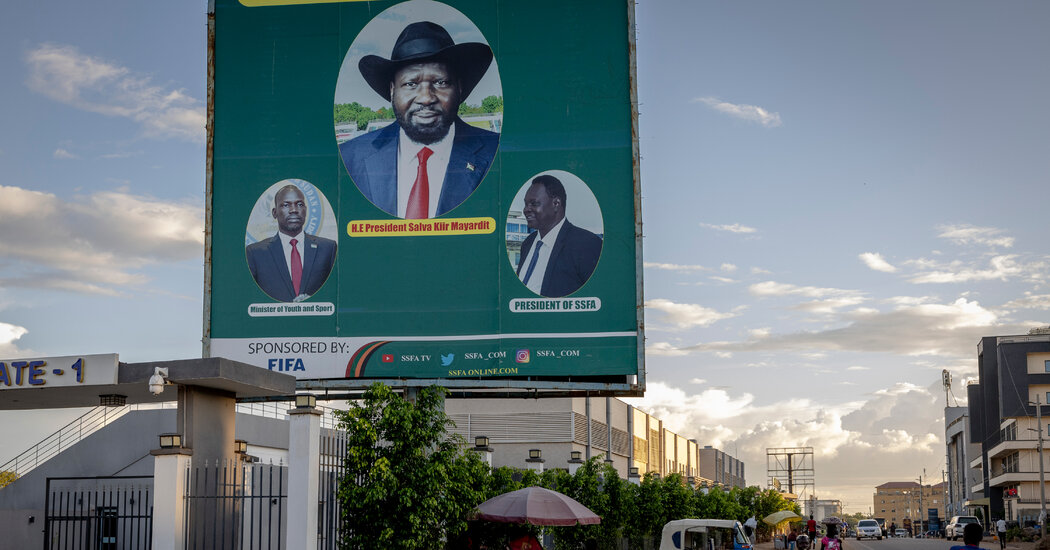Secretary of State Marco Rubio said on Saturday that he was revoking the visas of all South Sudan passport holders because the country’s transitional government had refused to accept in a “timely manner” citizens who were being deported by the Trump administration.
Mr. Rubio also said in a social media post that he would “restrict any further issuance to prevent entry” of South Sudanese, blaming the “failure of South Sudan’s transitional government” to accept the repatriations. In a statement issued through the State Department, Mr. Rubio said, “we will be prepared to review these actions when South Sudan is in full cooperation.”
Mr. Rubio’s action is similar to one that President Trump announced in late January, when he threatened Colombian officials with revocation of their visas and tariffs on the country’s exports because they were refusing to accept U.S. military flights with Colombian deportees. In that case, Colombia reversed its decision quickly.
The decision by Mr. Rubio to approve such a sweeping action on the visas of South Sudanese travelers and immigrants is a further sign of the Trump administration’s intense focus on trying to deport as many foreign citizens from the United States as quickly as possible, an action that Mr. Trump promised he would take while on the campaign trail.
Some of the potential deportees have filed lawsuits against the Trump administration, and several judges have issued temporary restraining orders as a result.
Officials in South Sudan could not immediately be reached for comment late Saturday.
Lucas Guttentag, a former Justice Department official during the Biden administration, called the move “another example of damning individuals based on nationality and upending the lives of innocent and law abiding visa holders instead of engaging in meaningful diplomacy.”
The Trump administration has attempted to conduct a mass deportation campaign through major operations across the United States in the last few months. Mr. Rubio has argued that he had the right to revoke the visas of some of those potential deportees, now in detention centers, because they were subverting American foreign policy.
Several prominent detainees took part in campus protests or wrote essays against Israel’s war in Gaza and American weapons support for it.
Mr. Rubio said on March 27 that he had revoked perhaps 300 or more visas and was signing papers daily to deport more people. The most prominent foreign citizen to have had his visa revoked was perhaps Óscar Arias Sánchez, the former president of Costa Rica and a recipient of the Nobel Peace Prize. Mr. Arias said on Tuesday that the U.S. government had informed him that the visa in his passport had been suspended, weeks after he wrote on social media that Mr. Trump was behaving as if he were “a Roman emperor.”
The U.S. government has long faced issues with countries taking in people set to be deported by the Department of Homeland Security — either because of a lack of diplomatic ties or problems getting the proper travel documents. During the first Trump administration, U.S. officials imposed visa sanctions on several countries that they viewed as uncooperative. Those sanctions affected certain people already abroad seeking visas.
In 2023, the Biden administration offered protection from deportation for migrants from South Sudan through a program known as Temporary Protected Status. The decision was made, officials said then, because of violence in the country. Those protections run until May.
